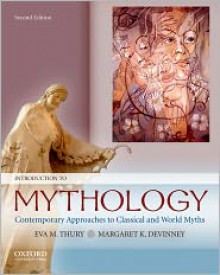The only complete world mythology textbook available, Introduction to Mythology: Contemporary Approaches to Classical and World Myths, Second Edition, integrates original texts with explanations, interpretations, theory, and numerous pedagogical aids to introduce students to a wide range of myths...
show more
The only complete world mythology textbook available, Introduction to Mythology: Contemporary Approaches to Classical and World Myths, Second Edition, integrates original texts with explanations, interpretations, theory, and numerous pedagogical aids to introduce students to a wide range of myths from various critical perspectives. Featuring texts from sources around the world, it includes readings from Greek and Roman classics (by Homer, Hesiod, Ovid, and other writers); Nordic mythology (by Snorri Sturluson); Hindu culture (The Ramayana); Chinese mythology (Nü Kwa; new to this edition) and from such ancient works as The Epic of Gilgamesh, the Bible, and the Mesopotamian story of Enuma Elish (new to this edition). Selections from Native-American sources and folktales and stories from Africa, Germany, and the United States are also included. In addition, authors Eva Thury and Margaret Devinney draw comparisons between classical myths and such contemporary cultural phenomena as The X Files, Star Trek, Mother Goose, and, new to this edition, Harry Potter, Stagecoach, and Firefly. They also incorporate readings by Carl Jung, Claude Levi-Strauss, Victor Turner, and other scholars who consider mythic material from different analytical perspectives. Finally, traditional works by writers like John Milton and John Keats as well as those by contemporary authors like Anne Sexton, John Updike, Angela Carter, and James Joyce are presented as examples of literary texts with mythological roots.Introduction to Mythology uses an innovative pedagogical structure to help students unravel the complex web of literary allusions often found in mythological texts:Extensive marginal notes provide cross-references and explanations of terms and culture-specific concepts A glossary of deities and suggested readings for each chapter offer students additional
show less

